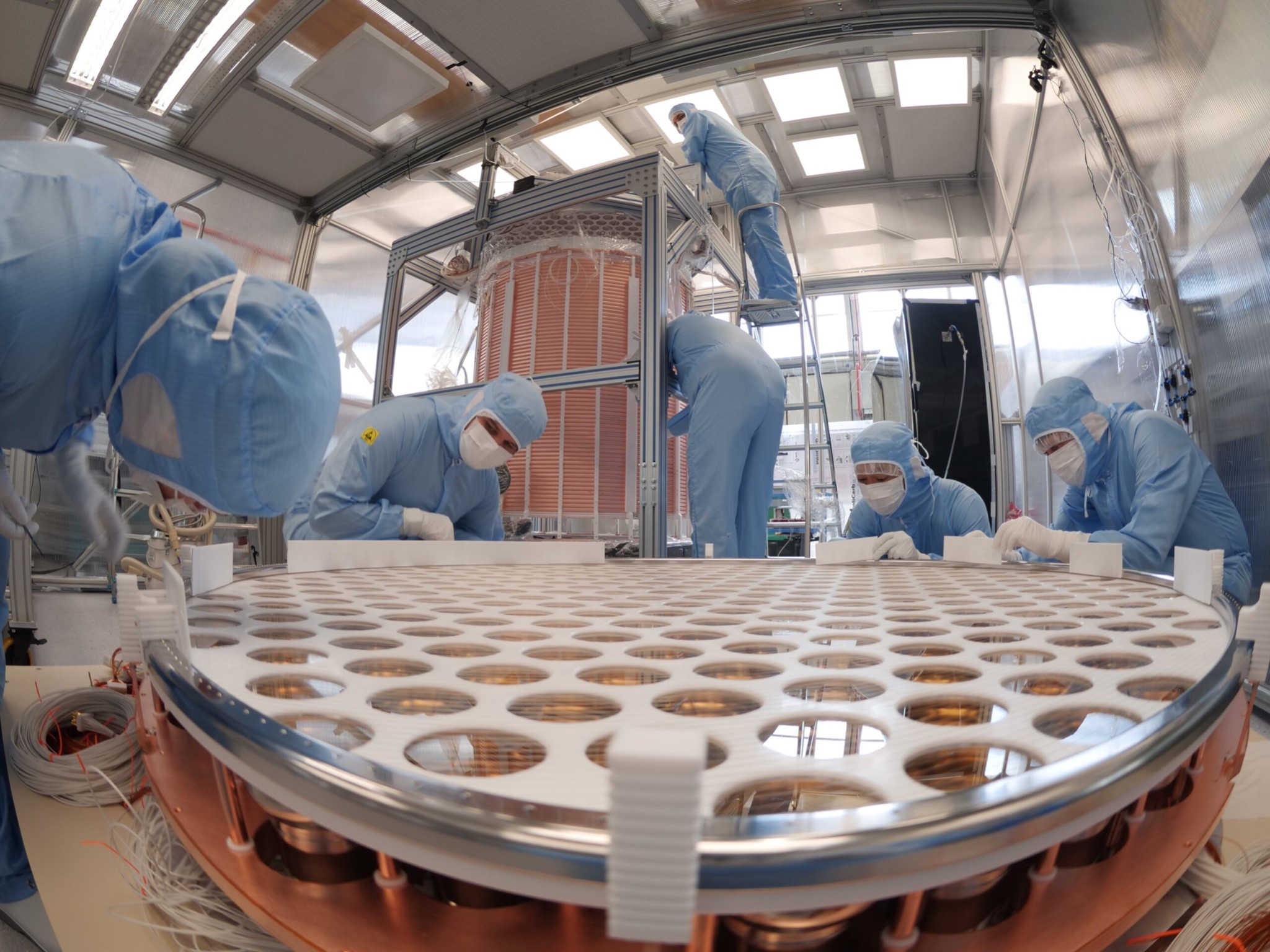First results from a Search for New Physics in Electronic Recoils from XENONnT
2022-07-22
Scientists from the international XENON collaboration, an international experimental group including Prof. Yoshitaka Itow, Dr. Masatoshi Kobayashi, Division for Cosmic-Ray Research, Shingo Kazama, the Kobayashi-Maskawa Institute for the Origin of Particles and the Universe (KMI), Nagoya University; Nagoya University; the Kavli Institute for the Physics and Mathematics of the Universe (Kavli IPMU), The University of Tokyo; the Institute for Cosmic Ray Research (ICRR), The University of Tokyo; and the Graduate School of Science, Kobe University, announced today the first results from XENONnT, the latest detector of the XENON Dark Matter program. The XENON collaboration reported that the excess in low energy electronic recoil events which was observed in the predecessor XENON1T was not observed in the data from XENONnT and thus strong limits on new physics scenarios were set. This result was presented at 14th International Conference on Identification of Dark Matter (Vienna, Austria), on 18:30 2022/7/22 Japan Standard Time.
The XENON collaboration is an international experimental group including Nagoya University, the University of Tokyo, and Kobe University from Japan.
This research related to XENON1T and XENONnT experiments are supported by: JSPS Kakenhi (18H03697, 18KK0082, 19H05802, 19H05805, 19H00675, 19H01920, 21H05455, 21H04466, 22H00127) and JST FOREST JPMJFR212Q.
For more detail, please visit following press release ;
Press release from XENON Collaboration
https://www.lngs.infn.it/en/news/xenon-nt-first-results
Press release from KMI
https://www.kmi.nagoya-u.ac.jp/blog/2022/07/22/xenonnt_first_results/
Paper details
Title: Search for New Physics in Electronic Recoil Data from XENONnT
Author: XENON Collaboration
Preprint: https://arxiv.org/abs/2207.11330
(Submitted to Physical Review Letters)

“XENON researchers working to assemble a bottom PMT array for the XENONnT detector.
The TPC cage is seen hehind. Credit: Luigi Di Carlo for the XENON collaboration


